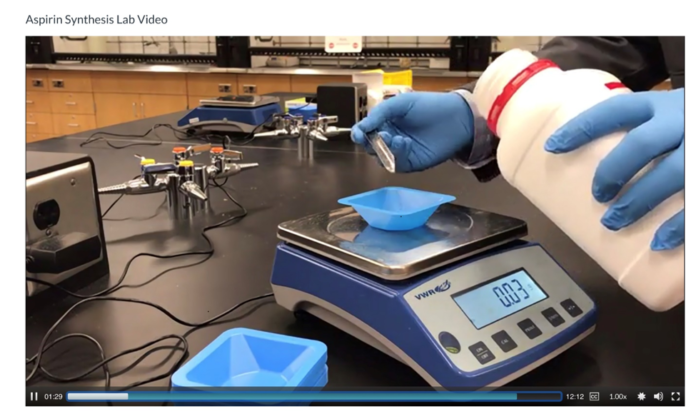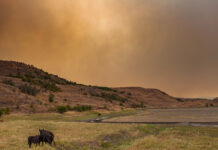In recent weeks, Mercer students, faculty and staff have been faced with the task of transitioning to online coursework in the wake of the spread of COVID-19.
For many, this looks like a series of recorded lectures and synchronized class discussions via video conferencing. Science professors, however, are working together and finding innovative ways to tackle the added challenge of conducting labs virtually.
Professors in each department have teamed up to provide general frameworks to give their students the best possible online laboratory experience. Many have done this by creating lab videos.
“We have produced a video of the laboratory procedures, being sure to show students all the data that they would have collected themselves if they had been in the laboratory,” said Dr. David Goode, associate professor of chemistry.
”We essentially became their hands in the laboratory,” added Dr. Sylvia Bridges, senior lecturer of chemistry.
Other professors are taking similar measures.
Dr. Jeffery Hugdahl, professor of chemistry, meets with his students via video conference during their normal lab time after the students have watched the demonstration video. He said they use the time in which they would be conducting in-person lab experiments to discuss lab procedures and how to use the data they found.
While it isn’t the typical hands-on experience we usually get in the lab, it is easy to see what’s going on.
Gabrielle D’Alessandro
Biomedical Engineering Major
Professors have been able to retain many aspects of their in-person courses in their new virtual curriculum.
“The organic chemistry faculty have been using online Canvas modules for several years to distribute lab information, for pre- and post-lab quizzes and to receive scanned copies of completed laboratory notebook pages,” Dr. Bridges said. “In other words, our online framework was already built.”
Because the concept of online lab demonstrations is new to both students and professors, faculty are offering additional resources to help make the transition smoother. Professors are offering Zoom conferences for office hours to address any questions about the course content, lab content and online transition.
“Although the transition has been difficult for me, my professors have been working really hard to make it easier on us,” said junior biomedical engineering major Gabrielle D’Alessandro.
D’Alessandro is enrolled in Dr. Goode’s organic chemistry II class. In addition to virtual office hours, she said her professors have extended assignment deadlines and are open to student feedback to improve their lab experience.
“Given the circumstances, I think the way my labs are set up are very effective,” she said. “While it isn’t the typical hands-on experience we usually get in the lab, it is easy to see what’s going on.
“I really appreciate how hard professors have worked to make lab experiences much like the one we get in hands-on labs.”
Dr. Hugdahl said the overall goal is to show students how to stay safe in the laboratory, perform the lab procedures and obtain data, while remaining informative and engaging.
Though this concept will take some getting used to, Dr. Hugdahl believes his students will do just as well in the online lab course.
“My students have been remarkably resilient and patient during this transition, and I don’t expect anything different for the lab part of the class,” he said.










